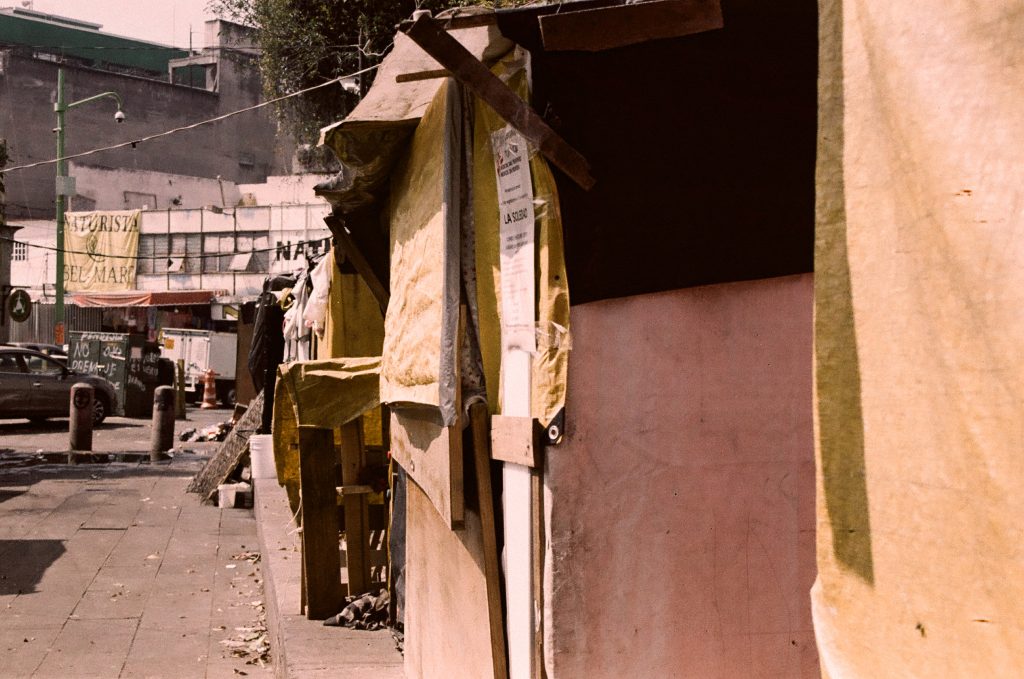These testimonies were collected in the field and later lightly edited for clarity and flow. All names have been changed to protect the individuals’ privacy.
Yolanda, 25 years old – Ecuador
Reynosa, northern border of Mexico with the United States
My emotions were mostly worry and sadness, because if you didn’t have money, they’d take you to a corner and touch you. Just to keep them from laying a hand on my daughter, I had to give in. It was horrible. I became overprotective. I was scared someone might hurt anywhere we went.
Crossing the Darién was the scariest part. A lion was roaring behind us, and I kept thinking, when is it going to jump out and eat my daughter? On the cliffs, she was holding on tight and I was terrified she’d lose her grip and fall. Why did she have to live through something like that?
Fear follows me, even in my dreams. My daughter tells me, “Mommy, I dreamed we fell off the mountain again.” Sometimes I want to forget, but you don’t forget. We made it out, yes, but that also leaves scars.
Luisa, 24 years old – Venezuela
Esquipulas, southern border of Guatemala with Honduras
We’re very sad, because we came chasing that American dream. We don’t have a house; we have nowhere to shelter those kids back in Venezuela. It’s easier there to get a little home, to send dollars. But we got stuck here. And now we work anywhere we can.
We spent several nights sleeping outside the IOM. They stole the bag where we had everything. Luckily, the documents were in a different one. If not, we would’ve ended up undocumented. The organizations helped us with housing for eleven days. Then, back to the street again.
We’re very sad, because we came chasing that American dream. We don’t have a house, we have nowhere to shelter those kids back in Venezuela. It’s easier there to get a little home, to send dollars. But we got stuck here. And now we work anywhere we can. We spent several nights sleeping outside the IOM. They stole the bag where we had everything. Luckily, the documents were in a different one. If not, we would’ve ended up undocumented. The organizations helped us with housing for eleven days. Then, back to the street again.

Luisa, 43 years old – Honduras
Tapachula, southern border of Mexico with Guatemala
I had four children, but they were taken from me. I haven’t seen them since they were four years old. I left my country because of violence—verbal, physical, and death threats. They wanted to kill me. That’s why I ran.
I’ve suffered since I was a child. When I was nine, my mother gave me away to an aunt. I came back home when I was nearly sixteen. They used to say my father touched my sisters, but I didn’t believe it. When I returned, I was abused too. They touched my breasts, but I never knew who it was. I would freeze up. I wanted to turn on the light, but I couldn’t. I was trapped in that fear. Then I got married. My husband used to beat me a lot. I have a scar on my face, two stab wounds on my legs, a blow to the head from a revolver, and another on my nose with a glass plate. These are things that don’t go away. The ones you see… and the ones in your heart. Only God can heal those.
I slept many times on the street, in parks. I asked for help, but people didn’t always give it. I begged. Slept wherever I could. I thought about ending my life more than once. I’ve been afraid of losing my mind. I even started having hallucinations. But I’ve stayed strong, because my kids need me and because I want to break free from this story of so much abuse.
This is a message for women who are suffering violence: leave that violence. Don’t wait for what happened to me. Move forward on your own, the way I’ve done it—with four children. I know that when they grow up and begin to understand the journey I went through, when they start sharing that love with me, I know those scars will start to fade. I truly believe that.












